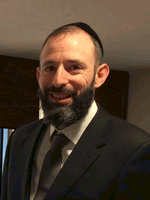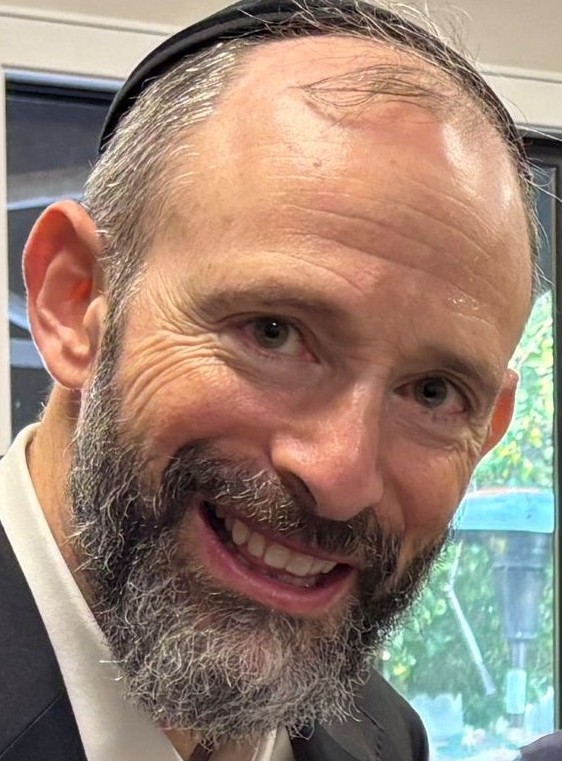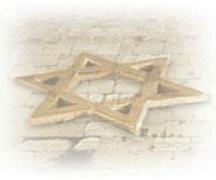by: Daniel Eisenberg, M.D.(source: Aish.com)
Dear Dr. Eisenberg: Someone told me that Jews believe that an infant doesn't become fully human until the eighth day after birth, hence the timing of circumcision. Would you please comment on this?
B.D. University of Texas
Dear B.D,
A fetus in utero lacks only one degree of "full humanity" in that its life is subordinated to that of the mother if the fetus presents a threat to the mother's life ("Abortion in Jewish Law"). However, a baby is considered to be a full-fledged human being from the moment of birth.[1] Nevertheless, the baby does not have a "chazaka", or assumption, that it will survive long-term until it has reached the age of 30 days. For this reason, a baby who dies within 30 days is comparable to a stillborn baby and there is limited mourning in such a case.
While Jews perform the circumcisions of their sons on the eighth day because the Torah commands it, there are multiple reasons given for why the bris mila (circumcision ceremony) is performed on the eighth day.[2] None of these reasons are related to the baby becoming a person at eight days.
There is a particularly meaningful reason given for why the bris mila is on the eighth day. Rabbi Moshe Isserles[3] describes the custom of having a "welcoming" party (commonly known as a shalom zachor) for a newborn baby boy on the Friday night after the birth. Many commentaries ponder the question of why the party is held specifically on Friday night. Rabbi David HaLevi Segal, known as the Taz, brings a midrash[4] to explain the choice of day. The midrash comments on the command of the Torah[5] that a sacrifice not be brought before the newborn animal is eight days old:
"Rabbi Levi says that it is analogous to a king who decrees that anyone who wishes to see the face of the king must first see the face of the queen. Similarly says Hashem: do not bring a sacrifice before me until at least one Sabbath has passed for there are no seven days without a Sabbath and there is no mila (circumcision) without a Sabbath."[6]
Why the importance of the Sabbath? Keeping the Sabbath is compared to keeping the whole Torah and breaking the Sabbath is considered tantamount to transgressing the entire Torah, since the Sabbath is a testimony that God made the world.[7] According to the Torah, the exact times of the Jewish holidays are determined empirically by observing the appearance of the new moon and are set by the Sanhedrin. However, the Sabbath occurs every seven days without the input of man. Therefore, we see that while the holiness of the Jewish holidays derives at least partially from man, the holiness of the Sabbath comes directly and exclusively from God.
In Judaism, circumcision is considered a symbol of the covenant between God and the Jewish people. In fact, bris literally means "covenant." The bris is on the eighth day so that the newborn baby will by necessity live through a complete week which must include a Sabbath. Once the baby has experienced the "holiness" of the Shabbos, he may enter into the covenant of the Jewish people.
Why should circumcision be the sign of the covenant between the Jews and God? Circumcision represents the completion of the human being. According to Jewish tradition,[8] Adam, the first man, was born without a foreskin. Only when he sinned did he create a barrier between himself and God and at that point developed a foreskin.[9] The removal of the foreskin represents the physical act by which man attempts to come close to God again. The evil Roman ruler Turnus Rufus asked Rabbi Akiva why Jews perform circumcision. If God wanted men circumcised, would he have not created them that way? Rabbi Akiva answered that God provided circumcision as an act for man to improve himself, something that even God cannot do for him.[10]
Historically, Jews have undergone great sacrifice, sometimes even risking death, to perform circumcisions on their sons and bring them into the covenant of Abraham. More than once in Jewish history, during times of persecution from the Greeks and Romans to the Nazis, rulers have recognized that circumcision was at the core of Jewish identity, and have tried to ban it, often on pain of death.
It is important to recognize that while some medical studies have shown health benefits to circumcision, Jews do not circumcise their sons for that reason, but because of the covenant that it represents with God. While the American Academy of Pediatrics has changed its position several times, the Jewish people have always been steadfast in their commitment to bris mila.
Nevertheless, despite rare media reports and rabid blogs to the contrary, ritual circumcision is a very safe procedure. Dr. Avraham Steinberg, author of the Encyclopedia of Jewish Medical Ethics[11] (and a pediatric neurologist himself) reports that:
"...although ritual circumcision is usually performed by non-physicians, complications are extremely rare. A summary of several large studies comprising more than 24,000 newborn circumcisions found complications in only 0.06% to 0.25%. The medical literature between 1953 and 1980 contains only two instances of fatality as a result of circumcision. By contrast, in a report of 500,000 circumcisions in New York and 175,000 in the U.S. Armed Forces, not a single fatality occurred. These large studies are more reliable than reports of individual cases. The fact that isolated reports occur in the literature attests to the extreme rarity of death following circumcision."
It should be apparent that the timing of bris mila is meaningful and profound. Circumcision has been an integral part of Jewish tradition for thousands of years and we reaffirm our unique connection to God with each bris that we perform.
1] Nidda 44a
[2] Devarim Rabbah 6:1 states that God had pity on the child and instead of requiring circumcision immediately after birth, waited until the baby was stronger. This strength may be physical (Moreh Nevuchim 3:49) or spiritual (as discussed above regarding the Sabbath). Other reasons given are so that the baby is given time to "mourn" for the Torah that it learned in utero and has now forgotten (Taz, Yoreh Deah265:13), and that the parents are happier at eight days when "tumas leidah" no longer applies (Nidda 31b). Interestingly, the baby's coagulation factors appear to peak at the eighth day. See the essay entitled "A Tapestry of Eights" in Bris Milah by Rabbi Paysach Krohn (Mesorah Publications) for a detailed discussed of the significance of the eighth day for circumcision.
[3]Rama, Shulchan Aruch Yoreh Deah 265:12
[4] Vayikra Rabbah 27 (parshas Emor)
[5] Leviticus 22:27
[6] The Sabbath is commonly compared to a queen.
[7]Mishneh Torah, Hilchos Shabbos 30:15
[8] Avos D'Rebbe Nosson 2:5
[9] Sanhedrin 38b
[10] Midrash Tanchuma, Tazria 5
[11] For study references, see Steinberg, A. Encyclopedia of Jewish Medical Ethics; Feldheim: New York, p. 199








